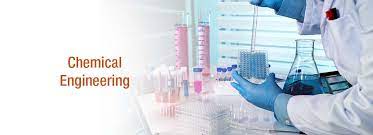Ph.D. in Chemical Engineering: Introduction, Admission, Registration, Eligibility, Duration, Fees, Syllabus 2024

Introduction:
The Ph.D. in Chemical Engineering is designed for aspiring researchers and professionals aiming to push the boundaries of chemical processes, materials, and technologies. This advanced degree prepares graduates for leadership roles in research, development, and academia, focusing on solving complex problems in the energy, pharmaceuticals, materials science, and biotechnology sectors. With an emphasis on innovation and sustainability, a Ph.D. in Chemical Engineering is pivotal in addressing global challenges related to health, environment, and technology.
Admission Process:
Gaining admission to a Ph.D. program in Chemical Engineering involves several steps:
- Application Submission: Complete the application form and submit it along with a personal statement, CV, and official transcripts.
- Educational Background: A master’s degree in chemical engineering or a related field is typically required, although exceptional candidates with a bachelor's degree may also be considered.
- GRE Scores: Many programs require GRE scores, particularly the quantitative section.
- Recommendation Letters: Submit 2-3 recommendation letters from academics or professionals who can attest to the candidate’s research potential and technical expertise.
- Research Proposal: Some programs may require a detailed research proposal that outlines potential research projects.
- Interviews: Interviews with faculty members are common to assess the candidate's compatibility with the program and research interests.
Eligibility:
Applicants generally need to meet these criteria:
- Strong Academic Record: Particularly in mathematics, sciences, and engineering courses.
- Relevant Experience: Research experience or professional work in chemical engineering or related fields.
- Technical Skills: Proficiency in chemical engineering software and laboratory techniques.
- Problem-solving Skills: Strong analytical and problem-solving skills are crucial.
- Innovative Thinking: A capability for innovative thinking and proposing novel solutions to engineering problems.
- Communication Skills: Excellent communication skills, necessary for writing research papers and collaborating with others.
Completion Time:
A Ph.D. in Chemical Engineering typically takes 4 to 6 years to complete, depending on the student’s research project and dissertation progress.
Career Opportunities:
Ph.D. graduates can explore various career paths, including:
- Academic Positions: Professors or researchers in universities.
- Research and Development: Roles in R&D departments of industrial companies.
- Pharmaceuticals: Development of new drugs and medical devices.
- Energy Sector: Innovating in sustainable energy solutions.
- Materials Science: Designing new materials with advanced properties.
- Policy and Regulation: Working in governmental or international regulatory bodies.
Syllabus:
Key subjects and areas of study often include:
- Advanced Thermodynamics
- Reaction Engineering
- Process Systems Engineering
- Transport Phenomena
- Materials Science and Engineering
- Biochemical Engineering
Internship Opportunities:
Internships provide practical experience:
- Industrial Internships: Practical experience in chemical plants or industrial labs.
- Academic Research Internships: Participating in university-led research projects.
- Government Research Labs: Opportunities to work on national security or public health projects.
- Startups: Working in startup environments to develop new technologies.
- International Internships: Opportunities to gain experience abroad, often with leading global companies.
Scholarships and Grants:
Financial aid options include:
- University Fellowships: Provides tuition waivers and stipends.
- Government Grants: Funded research projects or fellowships from governmental bodies.
- Industry Scholarships: Sponsored scholarships from chemical companies.
- International Scholarships: For non-domestic students, offered by both governments and private institutions.
- Research Assistantships: Employment through the university to work on specific research projects.
FAQs:
What is the focus of a Ph.D. in Chemical Engineering?
It focuses on developing advanced chemical engineering knowledge and research skills to address complex industrial and environmental challenges.
What are the prerequisites for a Ph.D. in Chemical Engineering?
A strong foundation in chemical engineering principles, research experience, and a master’s degree in a relevant field are typical prerequisites.
What career opportunities are available after obtaining a Ph.D. in Chemical Engineering?
Opportunities include academic positions, industrial research, and specialist roles in pharmaceuticals, materials science, and the energy sector.
Are internships important during a Ph.D. in Chemical Engineering?
Yes, internships are crucial for gaining practical experience and understanding real-world challenges.
